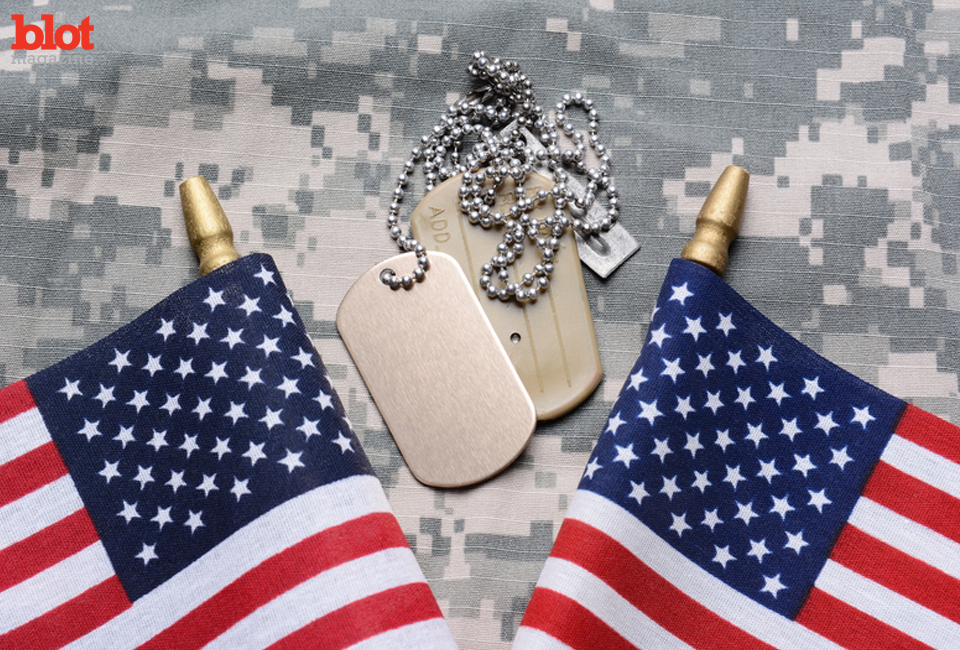
There’s no shortage of companies looking to honor the men and women who serve in uniform with free deals this Veterans Day. Many large chain restaurants — including Denny’s, Applebee’s, Chili’s and Hooters — are offering free food to anyone who identifies as an active duty or discharged service member, while others such as 24 Hour Fitness and Great Clips are offering free services throughout the day.
America’s veterans show nothing but appreciation for these small acts of honor — the very least the private industry can do to salute the men and women who serve their country. But ask a veteran how the civilian world can best honor them, and the answer is consistent: Veterans want and need jobs.
Indeed, it appears doing the very least to honor our vets is the operating procedure for big business in the United States: A deal for a free meal or service scratches the surface of honoring men and women in uniform — largely, these deals serve as free advertising for large companies who operate under the (correct) assumption that they will see an increase in business from veterans who want to enjoy their meals and deals with loved ones (Veterans Day deals often don’t extend to military families, ensuring that there will almost definitely be some kind of bill at the end of a meal or some charge for a service).
The number of unemployed veterans is staggering: The number of Iraq- and Afghanistan-era veterans without a job hovers around 7 percent, higher than the unemployment rate of the civilian world by more than a percentage point. And while that number has dropped significantly since last year (it was at 10 percent), it doesn’t take into consideration the number of unemployed veterans who have stopped looking for a job: For every one Iraq- or Afghanistan-era war veteran who identifies as unemployed, there are six more who are considered long-term unemployed (the number of long-term unemployed Afghanistan/Iraq-era veterans is more than 700,000, according to government statistics).
Of the more than 21 million veterans in the United States, a staggering 10 million are identified as long-term unemployed (the Bureau of Labor Statistics labels these veterans as individuals who are “not in the labor force“). This includes veterans who served in the Korean, Vietnam and both Gulf wars. For many of them, a free meal on Veterans Day may be the only decent food they can afford year-round.
For private industries, veterans are often viewed as a liability. Instead of considering their discipline and duty to service, managers tend to concern themselves with perceived physical and emotional handicaps, especially when presented with an applicant who has served in a combat zone. The notion that a returning veteran may have a significant brain injury or post-traumatic stress disorder (PTSD) causes some managers to preference non-uniformed applicants, even when veterans clearly demonstrate that their military skills can be applied to a civilian job.
Such was the perception earlier this year when news reports surfaced that a California Macy’s department store turned its nose at 21-year-old Kayla Reyes, an Army specialist who applied to the retail job after serving a year-long tour of duty in Afghanistan. Reyes told local news outlets that the interview process turned sour for her after the hiring manager began asking multiple questions about her combat service instead of focusing on her employable skills.
In a statement, Macy’s responded by saying that the company made hiring veterans a priority, and that Reyes’ application was “still being considered,” and that the store was “looking for an appropriate open position” for her. The company said hiring veterans is a priority (Macy’s has had an active military recruitment program since at least 2012, though it’s unclear how many veterans the company has hired). For Reyes, though, the opportunity came too little, too late — she bypassed the private industry altogether when she later accepted a government job with the California Department of Corrections.
Some companies have made a public effort to hire on war veterans. Wal-Mart, the largest employer in the United States, has made a commitment to hire 100,000 military veterans by 2018. Likewise, Starbucks has committed to hiring 10,000 veterans; the company’s CEO said in a recent interview that hiring veterans was one of the best things his company had ever done.
“Business leaders are mainly concerned with one thing: performance. I’m here to tell you, these are high-performance people who can add real value to your business,” Starbucks CEO Howard Schultz told USA Today. “It would be a tragedy if we spent 10 to 15 years in Iraq and Afghanistan, and we do something that is somewhat similar to Vietnam — not vilifying veterans like we did in the post-Vietnam years, but allowing them to become a distant memory.”
For at least one day out of the year, companies make veterans a forethought, even if it is self-serving. And while free food is nice, any veteran who has struggled for work will tell you honestly: They’d prefer to afford a comfortable meal year-round.
The absolute least any of us can do is thank a veteran for their service with a free meal. And for most of us, that’s exactly what we’ll do: The absolute least. But if we really want to honor those who put their lives on the line in service to our country, we must start with a paycheck.
Matthew Keys is a contributing journalist for TheBlot Magazine.





